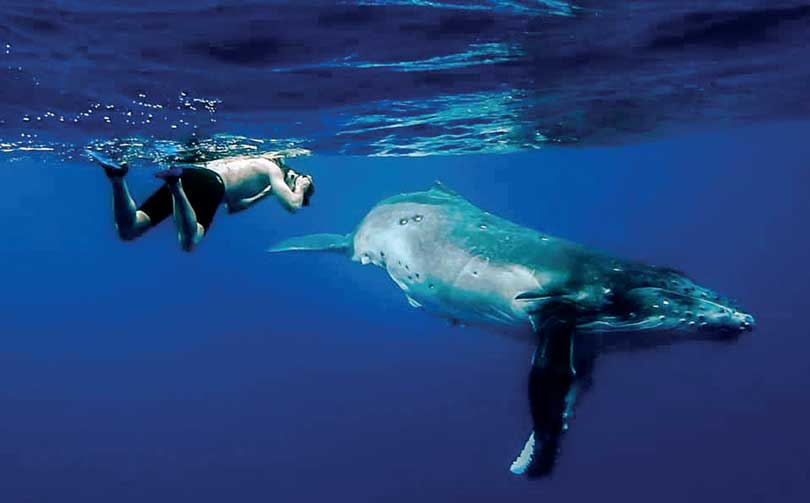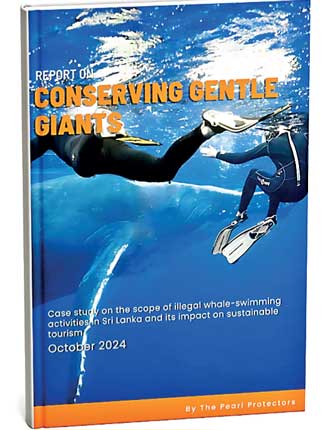Wednesday Feb 25, 2026
Wednesday Feb 25, 2026
Tuesday, 31 December 2024 00:01 - - {{hitsCtrl.values.hits}}


 A new report titled ‘Conserving gentle giants: case study on the scope of illegal whale-swimming activities in Sri Lanka’ was published and the first copy was officially handed over to Department of Wildlife Conservation Director of Protected Area Management Manjula Amararathne.
A new report titled ‘Conserving gentle giants: case study on the scope of illegal whale-swimming activities in Sri Lanka’ was published and the first copy was officially handed over to Department of Wildlife Conservation Director of Protected Area Management Manjula Amararathne.
The yearlong investigative report conducted by The Pearl Protectors highlights the pressing challenges facing the country’s iconic whale populations. While Sri Lanka has become a prime destination for whale watching, the report highlights a worrying trend: A significant number of tour operators are engaging in illegal and unethical practices, including swim-with-whales tours that violate current regulations.
The qualitative study was conducted from September 2023 to August 2024. The researchers posed as tourists and interviewed 35 tour operators (21 responded) and collected data on tour packages, prices and cetacean species through hidden observations, social media, emails and visits. In addition, boat captains, marine biologists and ethical operators were interviewed to gain authentic insights.
The findings indicate that 73% of operators in Mirissa and 83% in Trincomalee are involved in whale-swimming activities and often encourage close encounters. Such reckless behaviour endangers the safety of cetaceans and humans and jeopardises Sri Lanka’s reputation as a sustainable tourism destination.
The report calls for immediate action and emphasises the need for stricter enforcement of regulations and greater customer awareness. Tourists have a crucial role to play: by choosing eco-friendly options, they can help protect these majestic creatures and their habitats.
The report was authored by Emily Berlage who is currently pursuing the field of conservation and management at Swedish University of Agricultural Sciences. Co-authors of the report are Sara Olyslaegers, Samudra de Silva, and Maleesha Gunawardana, while contributors are Sabrina Eliatamby, Muditha Katuwawala, and Amila Sumanapala. The report is available online on www.pearlprotectors.org/publications.
